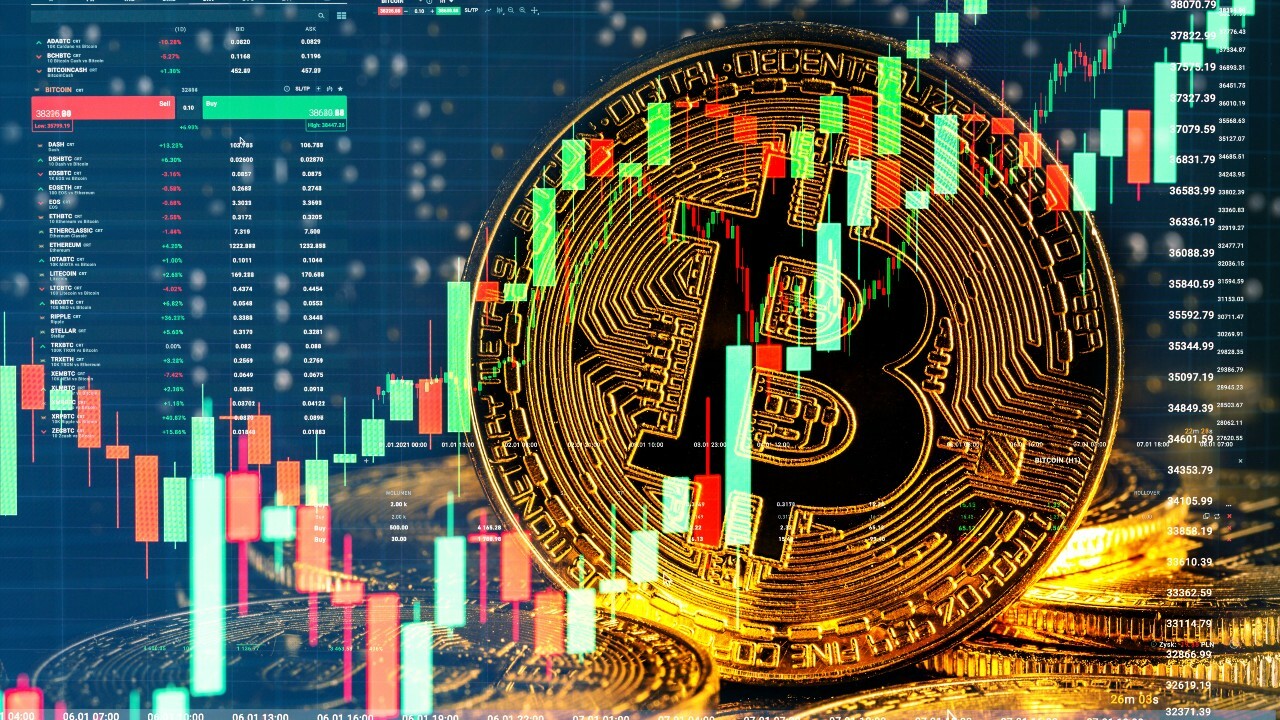There are several ways to sell Bitcoin, and the procedure will differ based on whatever option you
choose. When You Sell Bitcoin, Where Does the Money Go? is a common question among those who are learning about Bitcoin or cryptocurrency for the first time.
Another question that may be on your mind is, “When You Sell Bitcoin, Do You Get Real Money?”
Before we get into where your money goes after a successful BTC to Naira sale or exchange, or if you get
real Nigerian Naira after selling your Bitcoin, several fundamentals must be covered. Continue reading to
learn more as we take you on a trip around the crypto-verse.
Table of Contents
What is Bitcoin?
Bitcoin is a digital asset and a payment system invented by Satoshi Nakamoto. Transactions are verified
by network nodes through cryptography and recorded in a public dispersed ledger called a blockchain.
Bitcoin was first released as open-source software in 2009.
As of June 9, 2023, Bitcoin is trading at $26,620.14 per BTC. The price of Bitcoin has been on a
downward trend since its all-time high of $69,000 in November 2021. There are a number of factors that
have contributed to the decline in the price of Bitcoin, including rising interest rates, inflation, and the
ongoing war in Ukraine.
Despite the recent decline in the price of Bitcoin, some experts believe that the cryptocurrency has the
potential to reach new heights in the future. They point to the increasing adoption of Bitcoin by
businesses and institutions as a sign of its growing legitimacy. They also argue that Bitcoin’s
decentralized nature makes it a more attractive investment than traditional assets, such as stocks and
bonds.
Only time will tell what the future holds for Bitcoin. However, it is clear that the cryptocurrency has the
potential to revolutionize the way we think about money.
How To Sell Bitcoin for Cash in Nigeria
There are a few ways to sell Bitcoin for cash in Nigeria:
Use a cryptocurrency exchange:
There are a number of cryptocurrency exchanges that allow you to sell
-
Bitcoin for cash in Nigeria
Some of the most popular exchanges include Coinbase, Patricia, and Binance.
-
Use a peer-to-peer (P2P) marketplace:
P2P marketplaces allow you to sell Bitcoin directly to another
person. Some of the most popular P2P marketplaces in Nigeria include Paxful and Prestige Services.
-
Use a Bitcoin ATM:
There is only one Bitcoin ATM in Nigeria and 10 others spread across the continent.
Bitcoin ATMs allow you to sell Bitcoin for cash. However, the fees charged by Bitcoin ATMs are typically high.
Factors to consider when trading Bitcoin in Nigeria
When selling Bitcoin for cash in Nigeria, it is important to keep the following in mind:
-
The price of Bitcoin
The price of Bitcoin fluctuates frequently, so it is important to check the current
price before you sell.
-
The fees charged
The fees charged by cryptocurrency exchanges, P2P marketplaces, and Bitcoin ATMs
vary. It is important to compare the fees charged by different platforms before you sell.
-
The security of the platform
It is important to use a platform that has strong security measures in place
to protect your Bitcoin.
-
Ease of trade
The ease with which people can easily trade their Bitcoin directly with another
person(vendor) and get paid immediately is why Nigerians prefer using the peer-to-peer marketplace.
When You Sell Bitcoin, Where Does the Money Go?

When You Sell Bitcoin, Where Does the Money Go?
With the basics of Bitcoin covered—what it is, how to sell it for cash, and warning signs to watch out
for. We can now discuss what happens to the money following a successful BTC to Naira exchange.
When you sell Bitcoin, the proceeds are given to whoever purchased it from you. Depending on the
method you select, the sale of Bitcoin will have a different course. When you sell your Bitcoin, the cash
will be given to the person or organization that purchased it from you. They can receive the funds via
bank transfer, credit card payment, or another mode of payment.
Going into more details, here’s how the money is transferred when you sell Bitcoin on a cryptocurrency
exchange:
- When you sell Bitcoin on a cryptocurrency exchange, the exchange will first create a sell order.
The sell order will specify the amount of Bitcoin that you are selling and the price that you are
willing to sell it for. - The exchange will then match your sell order with a buy order from another user. The buy order
will specify the amount of Bitcoin that the buyer is willing to buy and the price that they are
willing to pay for it. - Once the sell order and the buy order are matched, the exchange will transfer the Bitcoin from
your account to the buyer’s account. The exchange will then transfer the proceeds of the sale to
your bank account.
Is Selling Bitcoin in Nigeria Illegal?
Selling Bitcoin in Nigeria is not currently illegal, but it is not officially recognized by the Central Bank of
Nigeria (CBN). In February 2021, the CBN issued a circular to banks and other financial institutions,
directing them to stop facilitating cryptocurrency transactions and desist from transacting with entities
engaged in cryptocurrency. This was done in order to protect Nigerians from the risks associated with
cryptocurrencies, such as fraud, money laundering, and terrorism financing.
However, the CBN’s circular does not make it illegal to own or trade cryptocurrencies. It simply prohibits
banks and other financial institutions from facilitating cryptocurrency transactions. This means that
Nigerians can still buy and sell cryptocurrencies, but they will need to do so through alternative means,
such as peer-to-peer (P2P) marketplaces or Bitcoin ATMs.
The CBN’s circular has been met with mixed reactions from Nigerians. Some people have welcomed the
move, arguing that it will help to protect the country from the risks associated with cryptocurrencies.
Others have criticized the move, arguing that it is an infringement on their freedom to trade.
It is still too early to say what the long-term impact of the CBN’s circular will be on the cryptocurrency
market in Nigeria. However, it is clear that the CBN is taking a cautious approach to cryptocurrencies
and is not yet ready to embrace them as a legitimate form of payment.
Why Sell Bitcoin?
You might want to sell Bitcoin if you want to cash out your profits, pay for something, diversify your
portfolio, or cover unexpected expenses. However, it’s important to note that Bitcoin is a volatile asset,
so you could lose money if the price of Bitcoin goes down after you sell.
Here are some things to consider before selling Bitcoin:
- Your investment goals
- Your risk tolerance
- Your financial situation
Ultimately, the decision of whether or not to sell Bitcoin is a personal one. You should weigh the risks
and rewards carefully before making a decision.
Where Can I Sell My Bitcoin in Nigeria?
As mentioned earlier, the best place for Nigerians to trade their bitcoin is via a peer-to-peer marketplace
and Prestige Services is one of the most reliable platforms for all Bitcoin, Giftcard and E-funds deals.
As a financial services institution that was incorporated with the objective of leveraging blockchain
technology using cryptocurrencies for innovative solutions in Africa, Prestige Services is a digital assets
exchange platform boasts as a diversified financial solutions provider with a broad portfolio in:
- Buying, selling and swapping of cryptocurrencies
- Buying and selling of giftcards
- Buying and selling of e-Wallets like Cashapp, Paypal funds, Skrill etc.
Conclusion
In a nutshell, when you sell Bitcoin, the money goes to the person or entity that bought it from you. The
process of selling Bitcoin will vary depending on the method you choose. You can sell Bitcoin on a
cryptocurrency exchange, through a peer-to-peer marketplace, or at a Bitcoin ATM. The money will be
transferred to the buyer’s account in the form of cash, a bank transfer, or another payment method.
About Author
Latest entries
 SpiceJuly 24, 2024Euro 2024 Rebate Winners Announced at iLOTBET – Did You Miss Out on the Cash and Cars?
SpiceJuly 24, 2024Euro 2024 Rebate Winners Announced at iLOTBET – Did You Miss Out on the Cash and Cars? SpiceJune 24, 2024Win a Chery Car & Share ₦100 Million with iLOTBET EURO FREE Prediction
SpiceJune 24, 2024Win a Chery Car & Share ₦100 Million with iLOTBET EURO FREE Prediction


